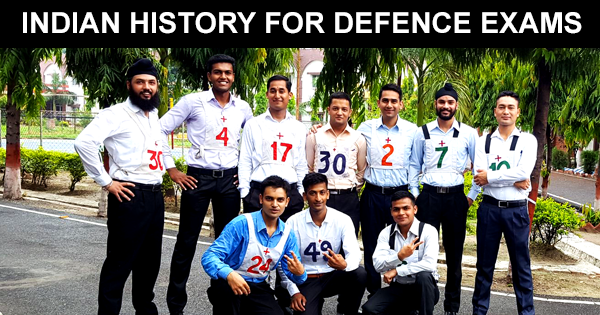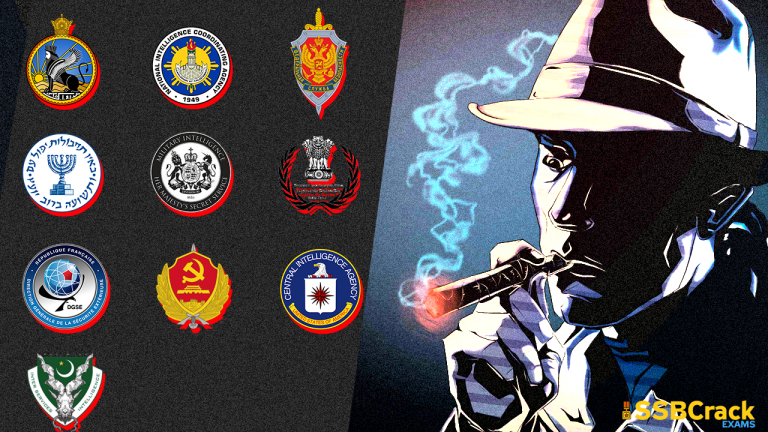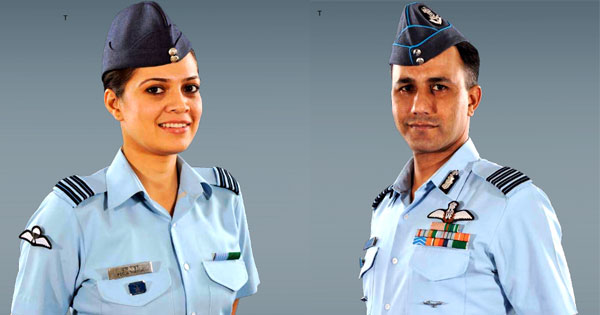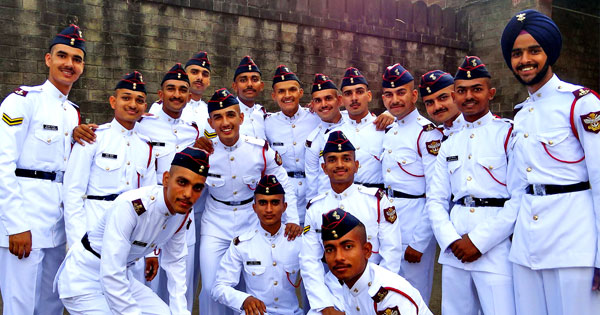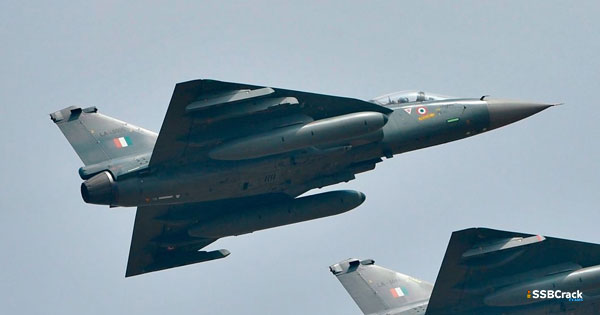Going through the History of our country is a very challenging job while you are preparing for examinations like those of NDA and CDS. However, the AFCAT and INET have comparatively simpler questions mostly, when compared to those that are conducted through the UPSC. If you understand, every aspirant has his own way of learning History. And yes, there are significantly many numbers of people who never study this and just tend to attempt questions by means of guess, and sometimes by methods like trial and error. I admit it. It’s tough to learn the history of our nation because it’s too diverse and the more we dig deep, the more we come to know. Obviously, we cannot devote large time to this, so how to learn this the best way, I present it here to you.
The time required to master the complete Indian History and to know every bit of it is more than a year. But the time required to master some key chapters of this and get acquainted with the most questions asked in exam point of view is 6 months.
6 months? So long? Yes, it will take much time. Unless and until you are also simultaneously studying this as some core subject of your graduation, our history does take time. But we have even less time. So how to tackle this?
Hence, I will present to you the list of the most important topics. First, go through these, then skip for others. Without having knowledge of these topics, you will definitely bore yourself and lose interest in this. So, keep the fire lit.
List of the topics to be studied compulsorily in Ancient Indian History:
- Periodization of Indian Prehistory – the Early Iron Age-related concepts.
- Some archaeological terms.
- Everything regarding Indus Valley Civilization.
- Vedic Texts, Puranas, Brahmanas, Aranyakas, Shastras, etc.
- Religious movements – Jainism (know all Tirthankaras).
- Mauryas and their Administration (know about Ashoka).
- The Sangam Texts.
- Everything related to Gupta Empire.
- Hindu Samskaras, ancient Indian languages and literature.
List of Topics to be studied in Medieval Indian History:
- Major dynasties of North India .
- Cholas, Cheras, etc. of the South India.
- Temple Administrations.
- Origin of Islam.
- Mahmud Ghori and his invasions.
- Everything regarding the Delhi Sultanate.
- Everything related to Alauddin Khalji, Muhammad bin Tughlaq, Firoz Tughlaq.
- The Lodhi dynasty.
- The Vijayanagara Empire and other provincial dynasties.
- Everything related to Mughals (learn all Mughal emperors and their reforms).
- The Brave Maratha rulers, the Afghans.
List of topics to be studied in Modern Indian History:
- The Carnatic Wars
- Anglo Maratha Wars
- Anti – Sikh Riots
- The East India Company Rule
- The Drain Theory, Colonialism.
- Commercialization of agriculture.
- Impact of Western Education introduction.
- Rise of social and religious reform movements.
- The 1857 Revolt, movements by Trade Unions.
- Establishment of Indian National Congress.
- Moderates and Extremists.
- Economic Nationalism (the Swadeshi movement)
- Home Rule Movement.
- Khilafat and Non-Cooperation Movements.
- Civil Disobedience Movement.
- Quit India Movement.
- Subhas Chandra Bose and INA.
- Rise of Muslim League.
- Partition of India and Independence.
- Everything regarding the Indian Constituent Assembly.
- The Nehru’s Vision.
- Industrialisation and Agrarian Reforms.
- Policy of Non-Alignment, Panchsheel, etc.
- Wars with Pakistan.
- Everything related to India’s involvement in UNO.
THINGS TO REMEMBER:
- Always maintain notes. Do not keep PDFs and all. Admit it. You can’t remember if you see it. You will remember if you write it. The only way of gaining mastery over these main topics is to write and keep short notes of it.
- Remember the timelines. This is absolutely crucial for you. Write the names of all-important things happened in a chapter and beside them, mention the dates or years. This will keep up your competence on a whole new level.
- Once you finish a topic listed above, put a tick mark beside it. Appreciate yourself. Attempt some questions. If you are subscribed to SSBCrack Exams, this will be something very advantageous to you.
- The real meaning of History is “His – Story” which simply means that it is the story of someone or something or some whole. It is a “story”. So keep it like a story. Just like a novel, read our history like something being informed to you. You will enjoy it.
- Breaking boredom is simple. One way which I try is, I feel I am appointed by the Government of India to study and examine things in the book which I have. Funny isn’t it. But what to do, unless I feel like I am the boss, I won’t get the zeal to accomplish something. This is proven method by psychology. It seems to be ridiculous but yes, it works. Feel like you are an MP while you are studying something regarding Parliament. Then you will say to yourself – “Oh! So police simply can’t arrest me. Wow. I am immune to many things! ?” and while studying Modern Indian History, feel yourself like a hero (I imagine myself as Subhas Chandra Bose, haha!) Then you will get the vibe of it.
- Any subject, unless learnt, will be a maniac and confusion to you. In my eighth standard, my seniors told me “Algebra is like King Cobra. You can’t master it! It’s tough.” And I was like – “What? OMG Seriously?”. And it did affect me badly. In ninth grade, I scored less in that topic. But in tenth, I, fortunately, got a lecturer who once heard this sentence and laughed at me. He said “Are you kidding me? This is the best part of Mathematics. Even Matrices come under Algebra.” Then I understood. I was enjoying Matrices but I never knew it comes under Algebra. It works one hundred per cent exactly the same in case of History too. First, catch the book and leave all preconceived notions aside. You can do it. Believe in that.
- You cannot sit with only one subject. So, keep good durations for every part of your preparation. Give due time to Maths, Polity, Economics, etc. whatever is related for your exam. History is one such thing – if unknown, you seem bored; if known, you don’t want to leave it. History creates interest and a sense for the societal transformations in you. It will give you an attitude of perceiving everything the ‘real’ way. So strong, yet so vast.
Also Download: SSBCrackExams App
So that’s it, guys. I hope I didn’t bore you. Keep me posted through comments on how did you take my Article and what all transformations you made. We are one family. A family of SSBCrackExams. Born to achieve! ?
